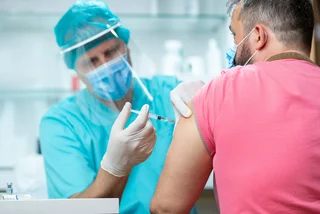Prague, Nov 16 (CTK) - Two thirds of people in the Czech Republic consider the closing of schools the most limiting of all the restrictions introduced against the coronavirus pandemic, according to a Median polling agency survey conducted for Czech Radio (CRo) on November 11-12.
Three fourths of Czechs believe that schools should have reopened sooner. Nearly two thirds support the relaxing of some restrictions before Christmas, given the current epidemiological development.
Schools have been closed for more than a month and distance learning has been introduced throughout the country. Most respondents said the reopening of schools should happen before the loosening of other restrictions.
Median director Premysl Cech told CRo that 43 percent of middle-aged respondents said they opposed the school closings very much, while 46 percent of university students opposed it as well.
This Wednesday, first and second grade primary school students, and students of special schools, will head back to classes. The return of other students will be assessed according to the new five-level anti-pandemic system PES.
The poll showed that people also opposed other restrictions. Two thirds of them, especially young people, would welcome the lifting of some before Christmas. Older respondents were more cautious, two fifths of whom were against loosening restrictions.
Apart from the closing schools, 24 percent of respondents opposed the closing of hairdressers and salons, shopping centers, restaurants, bars and pubs. Czechs were the least opposed to the closing of museums, zoos or limitation of taxi services.
According to the poll, people who do not want to get vaccinated against Covid-19 slightly prevail over those who would opt for the vaccination. Specifically, supporters of the Freedom and Direct Democracy (nationalist SPD) opposed the vaccination. People who are over 60, as well as those living in Prague are more willing to be vaccinated than others, according to the survey.
Health Minister Jan Blatny (ANO) said the first vaccines may reach the Czech Republic in January or February. If the vaccination proves to be effective, 65 to 70 percent of the population should be vaccinated, Blatny said.












 Reading time: 1 minute
Reading time: 1 minute 





























